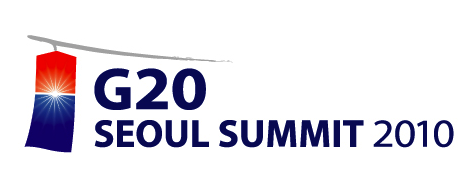Their first-day discussion focused on a U.S. and Korean proposal to set caps on current account balances as an option to resolve global imbalances and circumvent foreign exchange disputes.
The proposal which calls for setting numerical targets for current account surpluses and deficits, received mixed reactions initially. But Seoul officials said it could be seen as a feasible alternative to the competitive currency devaluations intensified over the past few weeks.
The two-day meeting of finance ministers and central bank governors is the last high-level talks before the Seoul summit on Nov. 11-12.
Major exports and developing nations are skeptical to the proposed trade balance cap.
Japan’s Finance Minister Yoshihiko Noda said that a U.S. proposal for setting a current account target is “unrealistic,” despite it being part of the G20’s job to urge countries to help avoid a race for cheaper currencies. “We need to talk about this first, but numerical targets seem unrealistic.”
A U.S. senior official Wednesday had said the G20 will discuss setting targets for current account deficits or surpluses at four percent of gross domestic product.
U.S. Treasury Secretary Timothy Geithner sent a letter to his G20 counterparts, urging the nations to “commit to undertake policies consistent with reducing external imbalances below a specified share of GDP over the next few years.”
| Finance Minister Yoon Jeung-hyun (right) makes the opening speech at the finance ministers and central bank governors’ meeting in Gyeongju, North Jeolla Province on Friday. From left: U.S. Federal Reserve Board Chair Ben Shalom Bernanke, Bank of France Governor Christian Noyer, French Finance Minister Christine Lagarde, and Bank of Korea Governor Kim Choong-soo. (Yonhap News) |
The letter was focused in pursuing the in-deficit nations to boost national savings and meet credible targets to reduce their debt levels. Recommendations given to in-surplus nations included fixing fiscal and structural policies to boost domestic demand.
It also urged G20 to “refrain from exchange rate policies designed to achieve competitive advantage.”
Korea, staying low-key on the issue so far, is speculated to mediate the tension through bilateral meetings. President Lee Myung-bak and Finance Minister Yoon Jeung-hyun said the exchange rate policy should be discussed at the G20 but more weight was given to the discussion over current account in tackling the economic imbalance.
The forum come at a moment when major global economies are pitted against each other to gain higher ground in the currency spat.
A central part of the dispute concerns mounting pressure on China and other Asian members, including Korea, to appreciate their currencies.
Early in the morning, finance ministers of the Group of Seven richest countries held a closed-door meeting.
The G7 consists of the U.S., Japan, the U.K., Germany, France, Italy and Canada.
Sources speculated that the unscheduled conference was aimed at coordinating foreign exchange strategies among the advanced countries amid the international currency war.
Apart from the G7 meeting, ministers of the U.S., France and Canada held a bilateral meeting with Korea’s Minister of Finance and Strategy Yoon Jeung-hyun, respectively, on Friday.
Noda told reporters in an emergency press conference that the G7 discussion would involve “the overall economy,” trying to emphasize that the meeting would not center on currency issues.
Japan notified Japanese reporters of the meeting Thursday night to talk about the sudden G7 meeting, sources said.
European Union Economic and Monetary Affairs Commissioner Olli Rehn on Friday morning said the G20 must avoid the downward spiral of competitive devaluations of their currencies. He also said, however, there is a possibility of nations failing to cooperate on economic policy.
Belgium finance minister Didier Reynders told reporters that G20 needs a balanced solution to exchange rates before the meeting began. He said exchange rates must be aligned with a nation’s economic strength.
A draft position paper from a G20 nation Thursday said G20 will pledge to “refrain from competitive undervaluation.”
It suggests G20 policy chiefs take a clear stance against a global currency war that seemed to be approaching after over a dozen nations stepped into foreign exchange markets to increase their trade surpluses.
The G20 will “move towards (a) more market-determined exchange-rate system,” it said.
Finance officials will discuss IMF reforms, global financial safety net, framework for strong, sustainable and balanced growth and bank reforms Saturday.
source - http://www.koreaherald.com/business/Detail.jsp?newsMLId=20101022000835

댓글 없음:
댓글 쓰기